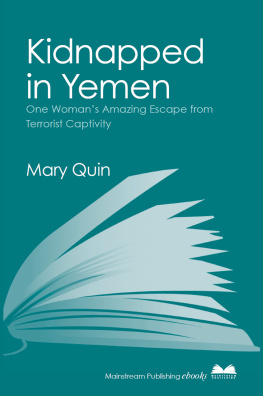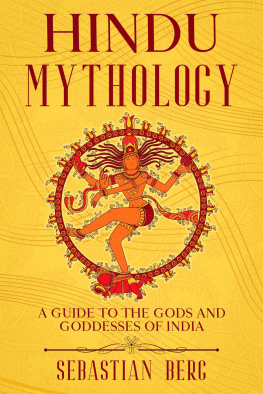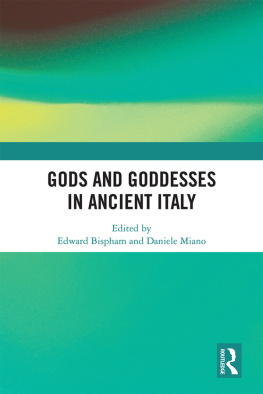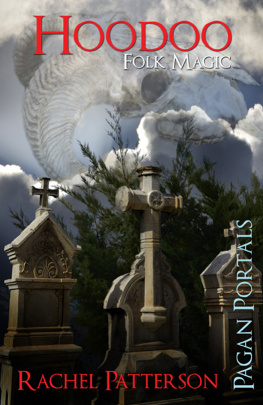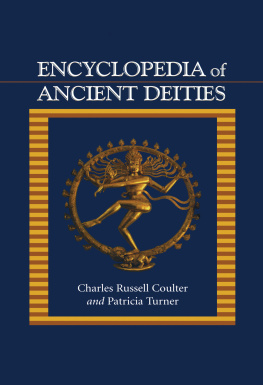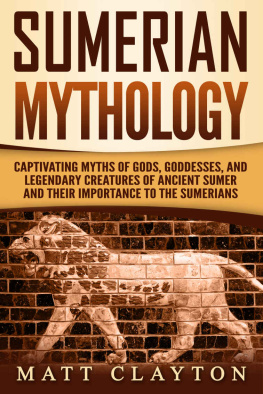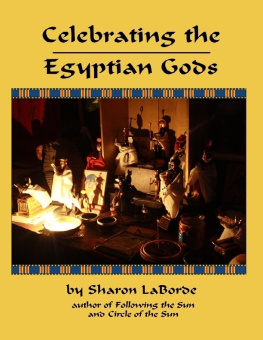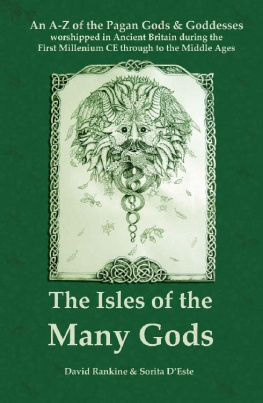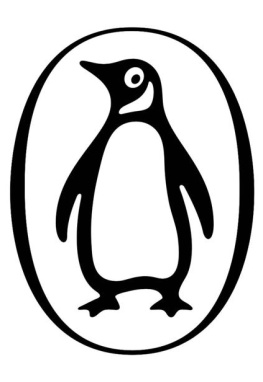Appendix I
Pronunciation Guide
In Welsh there are certain pairs of letters which make a single sound, and both w and y are vowels, alongside a, e, i, o and u, rather than consonants. Words can also mutate depending on the words and letters around them, and old Welsh had fewer letters covering a broader set of sounds than modern Welsh, so certain names can be spelled in a variety of ways. For example, b, p, v and f were once represented by a single letter, so Bran can be found spelled as Bran, Vran or Fran, though Bran is most common today.
Vowels, a, e, i, o, u, w, and y, are generally pronounced as short sounds, unless they wear a circumflex, or little roof (^), in which case they become long, or an acute accent () which makes them shorter.
The stress on each word is almost always on the penultimate syllable.
Eu sounds like ay as in hay
Aw sounds like ow as in sow (a pig)
F sounds like v as in vertical
W sounds like woo as in swoon, but is generally clipped
We sounds like wehh which becomes we as in web
C is always hard, as in king
R is trilled
Y is uh, as in huh, unless in the final syllable when it becomes ee as is bee
Dd sounds like thuh, as in a whole the with a short e
G is always hard, as in golf
U sounds like eeh as in eat, but can also be a clipped ee sound as in hit
Rh sounds like a soft breathy r as in rhyme
Ch is a soft ch, as in the Scottish loch
Ts is a ch as in church
In Welsh a ll is a soft, hissing sound, created with the tongue placed gently on the roof of the mouth with a sustained exhale represented here by *hl
Afagddu (Av-agg-thee)
Annwn (Ann-oon)
Arawn (Arr-awnn like around without the d)
Arianrhod (A ree-ann-rhod)
Blodeuedd (Blod-ay-eth)
Blodeuwedd (Blod-ay-weth)
Brn (Bran)
Branwen (Bran-wen)
Ceridwen (Keh-rid-wen)
Cigfa (Kig-va)
Creirwy (Kray-rooi)
Dn (Dorn)
Elfin (El-vinn)
Gronw (Gron-oo)
Gwawl (Goo-aool)
Gwri (Goo-ree)
Gwion Bach (Gwee-on BahCh)
Gwydion (Gwid-eeonn)
Harlech (Har-leCh)
Lleu Llaw Gyffes (Hlay Hlow Guff-vess)
Llr (hl-eer)
Manawydan (Man-ah-ooi-than)
Math (Math)
Matholwch (Math-ol-ooch)
Morda (Morr-dah)
Morfran (Morr-vran)
Myddin (Muhr-thin)
Nisien/Efnisien (Nee-Shenn/Ev-nee-shenn)
Penarddun (Pen-arr-thinn)
Pryderi (Pruh-deh-ree)
Pwyll (Poy-hl)
Rhiannon (Rhee-ann-on)
Taliesin (Tal-ee-eh-sin)
Teyrnon Twryf Lliant (Tay-nonn Toor-eev (second syllable is clipped, rhymes with give) Hlee-Ant)
Tynged/tynghedau (Tung-Edd / Tung-ehh-dhai)
Appendix II
The Houses of the Mabinogion
The four branches of the Mabinogion are often described as being about two clans, the House of Llr and the House of Dn. In the first branch we meet Arawn, Pwyll and Rhiannon, who are not of either of the big families, but in the third branch their families are tied into the two main clans. Neither features in the stories directly, only appearing as the ancestors of the beings we meet. There are suggestions in other sources that their stories were known but have now been forgotten. You may wish to work with them and see what they wish to reveal to you about themselves.
* * *
In the first branch we journey to the Otherworld.
Arawn and his wife are in the Welsh Otherworld, Annwn, as is the rival king, Hafgan.
Pwyll is Lord of Dyfed and eventually marries Rhiannon, daughter of Heveydd the Old, also from the Otherworld. In killing Hafgan for Arawn he becomes known as Pwyll Penn Annwn (Pwyll, Head of Annwn).
Their son is named Pryderi, who marries Cigfa.
* * *
In the Second Branch we meet the House of Llr.
Brn, Branwen and Manawyddan are the children of Llr and Penarddun. Nisien and Efnisien are their half-brothers.
Later, Manawyddan marries Rhiannon.
* * *
In the Fourth Branch we meet the House of Dn.
Dn and Math are the children of Mathonwy.
Gwydion, Gilfaethwy and Arianrhod are the children of Dn and Beli Mawr.
Lleu and Dylan are Arianrhods sons.
Lleu marries Blodeuwedd, made by Gwydion, who later leaves him for Gronw, a neighbouring lord.
Penarddun is another of Dns children, and the mother of Brn, Branwen and Manawyddan, showing how both families are connected.
Authors Note: Happily Ever After
It is April Fools Day today, a day for new ventures to leap, carefree, into the world. As I write this, the daffodils are in full bloom and the last of the lambs are appearing in the hills around my home. The tides of the Spring Equinox just passed turn the year towards summer. Blodeuedd blossoms in the spring flowers, Arawn hunts in the woodland, Branwens voice echoes in the chatter of starlings over the edge of the ocean. The gods of Wales live in this place and I feel honoured, every day, to feel them in my life.
Every time we speak their names and tell their tales we open the way for the gods to come further into the world today. Every time we work with their stories and shed new light on them, we allow them to evolve and find more relevance in our lives. As we work with them, they work with us and we can all grow. In this way we become part of the family, part of the tribe of story-keepers who carry the magic and the blessings of the gods through time and space. You have now become part of this tribe. Take the stories and carry them with love. Face the shadows held within that you are ready to face, and hold the delights in your heart as a talisman against the troubles of the world.
Creating this book has been a journey in deepening my relationship with the gods of my home, and an offering to them and to you, dear reader. I hope you have found it useful in getting to know them and their stories, and that it will be a helpful companion on your path forward. Thank you for trusting me to travel with you a while, and may the bard in each of us, the sacred fool, be blessed with many happily ever afters!
Diolch a bendition i chi,
~Halo x
1s April, 2018
Halo Quin lives in the heart of West Wales where she studies philosophy, magic and storytelling, especially local fairytales and legends. She has written and published on pagan topics over the years, usually with a focus on working with the Fae; the spirits and the wild magic of the land, notably in Pagan Portals Your Faery Magic (Moon Books, 2015). A lifelong practising faery witch, and a (more recent) member of the Order of Bards, Ovates and Druids, Halo offers divination, workshops, talks, and storytelling, and regularly runs seasonal rituals for the local community. Find more on her upcoming projects, adventures (and misadventures) at www.haloquin.net
PAGANISM & SHAMANISM
What is Paganism? A religion, a spirituality, an alternative belief system, nature worship? You can find support for all these definitions (and many more) in dictionaries, encyclopaedias, and text books of religion, but subscribe to any one and the truth will evade you. Above all Paganism is a creative pursuit, an encounter with reality, an exploration of meaning and an expression of the soul. Druids, Heathens, Wiccans and others, all contribute their insights and literary riches to the Pagan tradition. Moon Books invites you to begin or to deepen your own encounter, right here, right now.
If you have enjoyed this book, why not tell other readers by posting a review on your preferred book site.
Recent bestsellers from Moon Books are:
Journey to the Dark Goddess
How to Return to Your Soul


